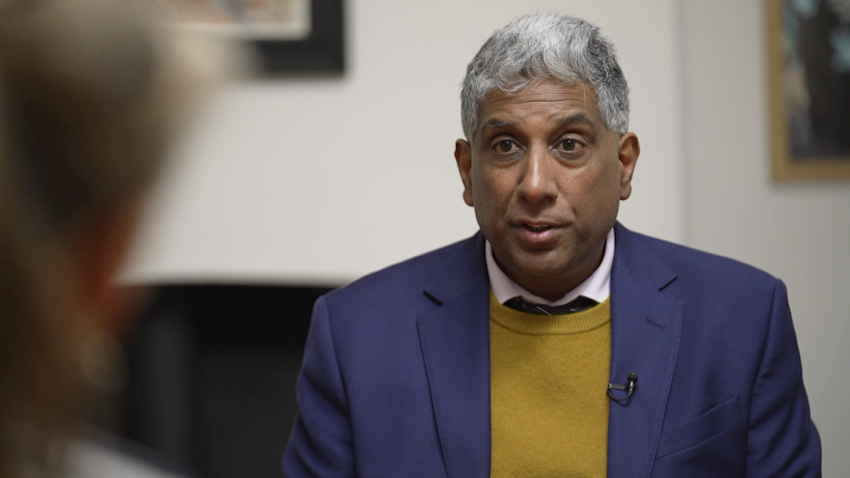Editor’s Note: Holly Thomas is a writer and editor based in London. She is morning editor at Katie Couric Media. She tweets @HolstaT. The opinions expressed in this commentary are solely those of the author. View more opinion on CNN.
This week, an officer in London’s Metropolitan Police appeared in court and pleaded guilty to 49 offenses, including 24 counts of rape over an 18-year period. David Carrick’s crimes were as audacious as they were grotesque. Detectives say that he lured victims to his home before imprisoning them, depriving them of food and subjecting them to the most depraved acts of violence and cruelty.

After the news of Carrick’s guilty plea broke on Monday, Detective Chief Inspector Iain Moore, who led the investigation by the Bedfordshire, Cambridgeshire and Hertfordshire Major Crime Unit, said: “It is unbelievable to think these offenses could have been committed by a serving police officer.”
Moore’s statement struck a chord, not because it rang true, but because it stood so sharply at odds with recent history. It has been less than a year since Wayne Couzens, the former Metropolitan Police officer who used his position to kidnap, rape and murder Sarah Everard, lost his appeal to overturn his life sentence because of the exceptionally sadistic nature of his crimes.
Like Carrick, who was sacked on Tuesday, Couzens had previously held an elite, coveted role as an officer with the Parliamentary and Diplomatic Protection Command, the unit that protects the Palace of Westminster and protects government ministers.
Carrick and Couzens gained access to one of the most trusted positions in public service thanks to repeated, egregious failures in vetting. The same month that Couzens pleaded guilty to Everard’s murder, an allegation of rape was made against David Carrick that led to his arrest. He was placed on restricted duties. He was not even suspended from the force.
“We should have spotted his pattern of abusive behavior and because we didn’t, we missed opportunities to remove him from the organization,” Assistant Commissioner Barbara Gray, the Met’s lead for Professionalism, said. “We are truly sorry that Carrick was able to continue to use his role as a police officer to prolong the suffering of his victims.”
To say that it is “unbelievable” that an officer could be capable of the most heinous crimes is not just naive: it is willful blindness. That blindness is endemic, in the Met and everywhere else. It is the fog that allows sinister behavior to escalate unchecked. It is the bridge that allows predators to reach their victims.
Again and again, law enforcement overlooked major transgressions that ought to have stopped Couzens and Carrick in their tracks. In the wake of these fiascos, around 1,000 current Metropolitan Police officers and staff who have been accused of sexual offenses or domestic abuse are now under review, and the National Police Chiefs’ Council is instructing all forces in England and Wales to check their officers and staff against national police databases.
This isn’t enough. The responsibility for the evil that Couzens, Carrick and who knows how many others have done doesn’t just fall on them. It falls on everyone who failed to heed warning sign after warning sign that they were bad people who might be capable of doing bad things and cultivated an environment where those failures were normalized. Thanks to them, what ought to have been glaring red flags blended into the background.
Both Carrick and Couzens had nicknames at work. David Carrick’s friends at the Met Police reportedly called him “Bastard Dave,” because he had a reputation for mean and cruel behavior. Couzens was reportedly called “The Rapist” by colleagues at the Civil Nuclear Constabulary where he worked before he joined the Metropolitan police — because he made women feel uncomfortable.
Once he joined the Met, he and other officers infamously sent each other grossly misogynistic and racist messages in a WhatsApp group they shared, reportedly joking about rape and fantasizing about using Tasers on children and people with disabilities.
The judge who eventually sentenced two of the officers involved to three months in jail said during her judgment that it was clear the defendants viewed the group as a “safe space.” There, she said, they “had free rein to share controversial and deeply offensive messages without fear of retribution.”
As any parent or teacher can testify, when naughty kids sit together, they egg each other on. An adult who’s paying attention can spot a deteriorating situation and mete out discipline or split up the potential miscreants before real harm is done, but the more that kids are allowed to get away with misbehavior, the further they’re likely to push their luck. The same is true, and far more dangerous, in adulthood.
The rot at the core of the Metropolitan police is shocking because it is the literal job of the police to prevent harm, but it mirrors a problem we see everywhere else. Bystanders vastly outnumber predators, but if they’re passive, they offer as much protection as air.
WhatsApp groups are overrun with toxic men (and other people) who routinely talk over each other, but fall silent when someone goes too far. Friends of friends who are known to be “creepy” are still invited to the pub on occasion or aren’t turned away if they show up regardless.
Men (and other people) are quick to declare their horror at Couzens and Carrick and cry #NotAllMen whenever the latest ghoul is unmasked, but they’re so often hesitant to act when they hear a second-hand story about someone they know personally. Most people will almost always choose a quiet life over an uncomfortable confrontation, and over time, that is how institutions are poisoned.
Earlier this week, Sir Mark Rowley, the Met commissioner, apologized for the force’s failure in missing nine opportunities to arrest David Carrick over the 17 years during which he served as an officer.
“We have failed. And I’m sorry,” Rowley said. “He should not have been a police officer. We haven’t applied the same sense of ruthlessness to guarding our own integrity that we routinely apply to confronting criminals.”
That’s the problem, again and again, everywhere. We focus intensely on the perpetrators and their crimes after the fact, but not nearly enough on the people who might have stopped them but for their own laziness, thoughtlessness or cowardice. It’s so much easier to denounce a villain after it’s too late than to step in first. But if more people did, it would be so much harder for the Carricks and Couzens of the world to slip under the radar.





